Welcome to the rollercoaster ride of womanhood, where the hormonal symphony reaches its final crescendo—the menopause! It's like the backstage pass to a concert you didn't know you were headlining, filled with surprises, mysteries, and a fair share of "What on earth is happening to my body?!" Buckle up, because in this article, we're diving headfirst into the wild world of menopause, unpacking the unexpected, the predictable, and everything in between.
1. You no longer make fertility hormones
When the curtain falls on your reproductive stage, your ovaries take a bow from their estrogen and progesterone production. Think of it as the grand finale—the last period marks the end of this hormonal production line. Suddenly, your body finds itself in uncharted territory...

Image source: The Denver Post
Your ovaries no longer make estrogen or progesterone. After your last period, production stops. This means that your sex hormones are now the lowest they've been and this comes with a whole host of symptoms and changes to your body, both physically and mentally.Original content sourced from Femanin.com
2. Your periods become irregular/ stop
Ah, the menopausal curtain call for your monthly visitor—the period! Brace yourself for the ultimate farewell tour because your menstrual cycle is about to embark on a topsy-turvy journey. The once familiar monthly routine is now staging a rebellious protest.

Image source: reddit
One thing you will notice when you begin the menopause is that your period will start to become irregular. They may be less frequent, and will eventually stop. But during this time many women experience differences in their periods - they may become lighter, or more heavy, or arrive when not expected.
3. Hot flushes
Imagine your body as a whimsical weather system, going through its own version of climate change during menopause. At the helm of this meteorological chaos? Hot flushes—those fiery, unexpected moments that turn your body into a thermostat gone haywire.

Image source: reddit
Hot flushes are a common and telling symptom of the menopause. Hormones are fluctuating as it is a time of great change in your body. These changes can result in your body having sudden and hot flushes, as well as periods where you feel very cold. Generally sweating more is also very common.
4. Mood swings
Absolutely, our emotions are like passengers on the hormonal rollercoaster ride of life. Picture this: your body, a bustling chemical laboratory, orchestrating an intricate dance of hormones, each playing a pivotal role in your emotional symphony.

Image source: reddit
Hormones are very much responsible for a lot of our changes in mood. If you think about it, our bodies are very complexly balanced form chemical processes and hormones. When things change, our mood can't expect to stay stable. It is totally normal to feel your mood being much more unpredictable - but there are ways to help!
5. Low sex drive
When it comes to the menopausal transformation, your libido—once a roaring fire—might feel more like a flickering flame. Blame it on the hormonal hibernation of those powerhouse sex hormones or the entourage of physical and mental sidekicks that join the party.

Image source: Scrolller
Because of the low levels of the female sex hormones, it can certainly affect your sex drive. And, not only is the chemical process of our sex drive lacking, but there are other factors such as the physical and mental symptoms which can also make us feel a little lacklustre.
6. Sleepless nights
Ah, the elusive mistress of the night—sleep during menopause becomes a dance with restlessness, a tango with insomnia. Consider it the backstage drama stealing the spotlight during this hormonal extravaganza. If you're tossing and turning, bidding adieu to the sweet embrace of sleep...

Image source: reddit
Trouble sleeping is a very common factor during the menopause, and if you are wondering what is causing it and if it is related to this period of life - it certainly is. You may find yourself waking up a lot, waking up because of temperature changes as well as struggling to fall asleep.
7. Low self esteem
The menopause—a transformative journey that goes beyond the physical and delves deep into the corridors of your emotional and mental landscape. It's a powerhouse of change, a chameleon that doesn't just alter your body but also paints the canvas of your emotions with vibrant hues.

Image source: reddit
Don't underestimate just how much the menopause can effect you. And it's completely normal to feel any kind of way. Low self esteem can come from a lack of hormones, as well as physical changes in your appearances and drops in your mood. If this is affecting you, make sure you research the methods which can help with the menopause.
8. A racing heart or palpitations
Welcome to the menopausal thrill ride where your heart decides to put on its own show—palpitations and a faster heartbeat become the headlining act! Picture this: your heart, the reliable drummer in your body's band, suddenly decides to freestyle, setting a faster tempo or throwing in some unexpected beats.

Image source: reddit
The menopause has been known to speed up heart rate as well as cause palpitations which are irregular heart beat patterns. These can both feel quite alarming, but they are common symptoms of the menopause. But, if you feel these are serious it's always worth getting checked out.
9. Headaches/ migraines
Ah, the headache—the unwelcome guest crashing the menopausal party! It's like an uninvited visitor that decides to make itself comfortable just when you thought you had all your symptoms figured out. But worry not, this is a familiar foe for many women.

Image source: reddit
Headaches and migraines are unfortunately also something you could expect when ging through menopause. That being said, it doesn't affect all women! Headaches and migraines for some women are also a common side effect of periods - so this may not be so different in terms of symptoms.
10. Vaginal dryness
Ah, the menopausal metamorphosis—the time when even your intimate arena, the vagina, joins the hormonal revolution. It's like a backstage makeover that brings about changes you never knew were part of the show. Enter vaginal dryness.

Image source: reddit
The menopause causes many changes to your vagina due to the lower levels of sex hormones. You may experience vaginal dryness as a result, which can cause a feeling of itchiness or even discomfort during sex. But, there are easy ways to alleviate this, such as using a safe and recommended lubricant.
11. Pain during sex
Absolutely, the menopausal transition can sometimes introduce an unexpected guest to intimacy—pain. While vaginal dryness often takes center stage, pain during sex can also emerge as a part of this transformative phase, like a silent disruptor in the script.

Image source: Shape
So this point leads on, to pain during sex. One reason could be due to vaginal dryness. But women have also experienced pain during sex due to the fact that the changes in the women's body during this time have resulted in temporary pain during intimacy. However, you should always inform your doctor about this to check whether this is just a symptom or there is something more serious.
12. Random bleeding
Ah, the menopausal saga continues with an unexpected plot twist—random bleeding! Just when you thought you were familiar with the menopausal symptoms, this unpredictable visitor decides to join the ensemble cast, leaving you with a raised eyebrow and a hint of concern.

Image source: reddit
Another symptom you may find during this time is that you encounter random bleeding. Many women have reported this phenomenon. However, this is another symptom which should always be checked. The bleeding could be caused by various things such as a polyp - or it could be a symptom of something more serious.
13. You may feel people do not take it seriously
Menopause—a profound chapter in a woman's life that often feels like a whispered secret in a bustling room. Despite being a transformative journey with far-reaching effects, it seems to dwell in the shadows, lacking the spotlight it truly deserves.

Image source: reddit
Sadly, menopause is still something that doesn't have enough attention in terms of how much it affects women's lives, both mentally and physically. Many women have felt that they have not been taken seriously in terms of medical professionals or at the workplace for example, despite the fact that a lot of women truly struggle during this process.
14. Memory/ concentration problems
Absolutely, the menopausal whirlwind doesn't just ruffle the physical feathers; it's a tempest that can play havoc with memory and concentration, often leaving women feeling like they're navigating through a mental fog.

Image source: reddit
Symptoms which are often overlooked during this time are things such as memory and concentration problems. It can hugely affect women's ability to work - s factor which should be recognised within the workplace. However, education is this area is still severely lacking.
15. Join pain and muscle aches
Ah, the menopausal symphony continues its performance, introducing a new melody to the ensemble—joint pains and muscle aches. It's like an unexpected solo, leaving women feeling like they're dancing to a tune they never quite learned the steps to.

Image source: reddit
You may experience that you have joint pains and muscle aches in your body. This may be in certain areas such as elbows and knees, or perhaps mildly all over the body. This should not last forever. It may be a temporary occurrence during the menopause.
16. A changing body
Bodies change throughout our life. And menopause is one of these phases where a woman's body starts to change. You may experience weight gain, because of the decrease in female sex hormones, your body starts to store excess weight.

Image source: Curvage
You may also find that you are storing the fat in different places, for example, the abdominal area rather than the breast or thighs or hips which you may once have noticed gain the extra pounds. It's completely normal, even if it can be a big change.
17. Increase of urinary tract infections
Ah, the menopausal journey takes a turn into the realm of urinary tract troubles—an unwelcome detour that many women encounter during this transformative phase. Enter the urinary tract infection (UTI), an unexpected passenger on this hormonal rollercoaster.

Image source: reddit
Many women have reported experiencing ore UTIs (Urinary Tract Infection) due to the menopause. The reason for this is because of the reduction of estrogen, which can mean that the lining of the urethra is thinner, meaning that the risk of infection can increase.
18. Anxiety
The menopausal stage isn't just a physical transformation; it's a rollercoaster of emotions that can sometimes send anxiety riding shotgun on this whirlwind journey. Yet, amid the hot flashes and mood swings, the mental side effects often find themselves overshadowed.

Image source: reddit
Anxiety is a symptom experienced by many people during the menopause. The mental effects are sometimes often underestimated during the menopause, however, they are just as real and prevalent as the physical side effects. Anxiety is something that can really interfere with daily life.
19. Changes to your skin and hair
Ah, the menopausal makeover—where your skin and hair decide to take on a transformation of their own, often leaving you feeling like you're in a beauty metamorphosis that wasn't entirely expected. Picture this: your skin, once the canvas of radiance, suddenly takes on a different hue...

Image source: reddit
You may notice changes in your skin and hair, whether that be the way it feels it the way it looks. You may feel like it looks a little dull in complexion or it feels a bit dry and irritated. This again is one of the physical changes and adjustments taking place in your body and it should settle after some time.
20. Irritation
For many women the menopause is a really tough time. And one of these reasons is because sometimes the symptoms linked with the menopause aren't widely known. Many women will suffer without seeking help because they do not know why they are feeling like this.

Image source: reddit
Or what it is that's making them feel this way. OR, they have found that f they do seek help they have not been taken seriously enough. Irritation is a common result of changes in mood, and a response to external and internal forces.
21. No more PMS!
Absolutely, let's hit the pause button on the list of woes and celebrate the silver lining amidst the menopausal clouds—no more PMS! It's like bidding farewell to a long-time nemesis, waving goodbye to monthly bleeds and the entourage of unpleasant symptoms that came with it.

Image source: reddit
Okay, so it's not all bad. We realise we've been listing all of the negative symptoms here - but hey, no more PMS! There's no longer monthly bleeds and all of the horrible symptoms that come with that such as bloating, cramps etc.. And, some women find this time of life particularly freeing.
22. Cramping
While bidding farewell to the monthly cycle and its entourage of PMS symptoms is a cause for celebration, for some women, the journey through menopause might not entirely wipe the slate clean of every former symptom.

Image source: TODAY
Although we've just said that you're finally rid of PMS symptoms, it ay not entirely true in all cases. Some women do still experience cramping. This is the changes taking place. However, this should not last long and should be a very temporary phase of the menopause.
23. Lower back pain
Ah, the lower back pain—a familiar companion that might decide to linger during the menopausal journey. It's like an echo from the past, reminiscent of those days when period symptoms would often manifest in various discomforts.

Image source: reddit
Along with the cramping can come the lower back pain; Or, you may have the lower back pain in isolation. This is also a symptom which is similar to period symptoms. This should also not last for more than occasional periods, it should not be a persistent pain.
24. You may have less energy
The menopausal rollercoaster brings along an unexpected passenger—fatigue. It's like a weight that settles upon the shoulders, sapping away energy and leaving women feeling like they're navigating through the day with leaden feet.

Image source: reddit
Less energy and lethargy is a very real and galling symptom of the menopause. And again, something that often people do not realise how debilitating this can be. Menopause can leave women exhausted. It is super important to prioritize yourself and get the rest you need.
25. Tender breasts
The menopausal shuffle doesn't spare the breasts either—tender and changing, they become another part of the symphony of transformations taking place during this phase. As estrogen and progesterone take a backseat, the breasts undergo their own set of alterations.

Image source: Manchester Evening News
Tender breasts can occur due to the drops of sex hormones, breasts may also lose some of their initial size. This symptom again, is one that should not last. And, it should not be mistaken for something more serious so of you experience breast pain or soreness it is always good to get checked.
26. An increased risk of certain health conditions
The menopausal juncture serves as a pivotal moment to embrace proactive measures for overall health and well-being. With this transition, there comes a heightened awareness of potential health risks such as high blood pressure, heart disease, and osteoporosis.

Image source: TODAY
It is super important to look after your body during this period of life. The menopause can increase your risk of certain health conditions such as, high blood pressure, heart disease and osteoporosis. But all of these risk factors can be reduced with changes to your lifestyle - such as healthy diets and exercising.
27. You may lose muscle mass
The menopausal stage sometimes presents another uninvited guest—loss in muscle mass. It's like a subtle shift in the body's composition, a change that might accompany this transformative phase, but it doesn't necessarily have to take center stage.

Image source: reddit
So along with the wight gain, there is also the loss in muscle mass. This is a common symptom of menopause and ageing. But again, if you keep up a healthy lifestyle or continue an exercise regime you can reduce this - or you may not even experience this at all!
28. Low mood
Low mood during menopause is like a storm cloud that can cast a shadow over daily life, leaving women feeling swamped with sadness, negativity, or a persistent sense of lethargy. It's a common and entirely normal response to the hormonal fluctuations taking place during this phase.

Image source: reddit
Low mood is one of the worst symptoms of menopause because it can leave you feeling extremely sad, negative or lethargic. While this is a very common and normal response to menopause - it's not something you should put up with! Once you realise the menopause is affecting you - it's time to get it back under control by contacting a medical professional.
29. It could last a long time
The menopausal journey isn't a swift sprint; it's more like a marathon, a journey that unfolds over a period of time and varies significantly for each woman. For some, it might feel like a passing phase, while for others, it could be a lengthier process that demands patience and persistence.

Image source: reddit
Menopause won't just go away or vanish in just a couple of months. It can be a seriously long process for some women. That being said, once you have found the methods that work with you, you may control the symptoms of menopause and continue life as normal.
30. There are multiple ways to help!
Absolutely, the diversity of experiences in menopause is as vast as the women who traverse this phase. It's crucial not to let the insights into the myriad symptoms dampen spirits because, in truth, each woman's journey through menopause is as unique as a fingerprint.

Image source: reddit
After reading this, we hope you're not feeling down about any of the things to expect during the menopause. Because each and every woman's experience is unique. And as we said before - there are so many things to research in terms of how best personally to help you. There are things such as hormone replacement therapy (HRT), as well as lifestyle changes and much, much more.
31. You're Not The Only One Going Through It!
The menopausal journey sometimes feels like a solitary trek through uncharted territory, even amidst a crowd of women experiencing similar life changes. It's as if a veil of silence shrouds these shared experiences, leaving individuals feeling isolated.

image source: reddit.com
It can often feel like you're completely alone in these life changes, even though you're obviously not - and even when you're surrounded by people the same age, if you're not openly talking about it, you might be wondering whether you're the only one getting flushes, mood swings and everything else - but you're definitely not alone!
32. The Average Start Age For Menopause Is 51
Having a ballpark figure in mind for the average age of menopause, which typically sits around 51, can serve as a helpful guidepost for women approaching this phase of life. While it's important to remember that this age is an average and individual experiences can vary, it provides a rough estimate.

image source: reddit.com
A lot of people might wonder when menopause is going to kick in for them, and the average age for menopause to 'officially' begin is 51. So it's a good idea to have this age in mind if you're approaching it, so you know when to expect it - and what to expect!
33. But You Can Stop Having Periods Between 45 And 55
The onset of menopause and the cessation of periods can indeed vary significantly from woman to woman. While the average age for menopause is around 51, it's important to recognize that the end of menstruation can occur earlier for some, even as early as the age of 45.

image source: reddit.com
Although the average start age for the menopause is 51, you can actually stop having periods a lot sooner than that - even as early as the age of 45. This can differ from person to person, but on average you can stop having periods between the ages of 45 and 55.
34. Earlier Menopause Can Actually Be Triggered By Other Things
The onset of menopause isn't solely determined by age; various factors can influence its timing, potentially triggering an earlier arrival. Smoking, for instance, has been associated with an accelerated decline in ovarian function.

image source: reddit.com
While there are set ages to expect the menopause to kick in, there are actually other things that can trigger an earlier menopause. This includes smoking, which can actually trigger an earlier decline in your ovaries and stop periods, and also going through chemotherapy could make menopause start more quickly.
35. There Is A Thing Called Perimenopause, Too
Perimenopause is like the backstage preparation before the grand performance of menopause takes center stage. It's the transitional phase that precedes menopause, signaling the body's gradual shift toward the cessation of menstrual cycles.

image source: reddit.com
You've heard of menopause, but have you heard of perimenopause? This is actually the term given to the period of time
before menopause begins. Perimenopause is the stage your body goes through when its preparing for the menopause - sort of like the transition period.
36. How Do You Know When You've Officially Entered Menopause?
Making the official transition from perimenopause to menopause is akin to crossing a significant milestone—the moment when menstruation ceases for a continuous span of 12 months. This cessation marks the threshold, confirming the arrival of menopause.

image source: reddit.com
You can officially say that you've gone from the perimenopause stage to the official menopause when you go 12 straight months without having a period. It can be quite frustrating to have to wait that long to know for definite whether you've hit menopause though!
37. You Might Not Always Get Hot Flashes
Absolutely, when the spotlight shines on menopause symptoms, hot flashes often take center stage. They're like the superstar symptom that many associate with this transformative phase. However, it's crucial to recognize that not every woman experiences hot flashes during menopause.

image source: reddit.com
When people talk about - or think about - the menopause, the most common symptom people say is probably the hot flashes. But it's important to note that you're not guaranteed to get this - around 75 percent of people get this, which makes it very common, but 25 percent don't get it. So it's not strange if you don't!
38. Think About Life Changes Before Jumping To Menopause
Identifying menopause amidst the spectrum of life's various experiences can be akin to navigating through a maze. The multitude of symptoms associated with menopause often overlap with everyday occurrences, making it challenging to attribute certain changes solely to this phase.

image source: reddit.com
Because of the variety of symptoms associated with menopause, it can be very tricky to know for certain - so make sure to take into account everything else going on in your life before concluding it's definitely menopause. Mood swings and joint pain, for example, can still happen to anyone!
39. You Can Feel Cold With A Hot Flash
The rollercoaster of hot flashes during menopause isn't just about experiencing intense heat sensations. Surprisingly, the aftermath of a hot flash can often leave you feeling quite the opposite—chilled and cold. When the intense surge of heat subsides after a hot flash, the body often overcompensates to cool down.

image source: reddit.com
Suffering through regular hot flashes, and everything that comes with it, may leave you thinking that you can expect to be hot and sweaty all day, every day - but that's not the case. Hot flashes can actually leave you feeling cold, too, when the flash stage has been and gone.
40. You Can Actually Reduce How Many Of These Flushes You Have
Managing hot flashes often involves identifying and mitigating potential triggers that can intensify these episodes. While triggers can vary from person to person, there are indeed common factors known to exacerbate hot flashes.

image source: reddit.com
If you're looking to avoid as many hot flashes as possible, there are actually some things that can trigger them, so you might want to avoid the following in order to be as comfortable as possible: spicy food, being in a hot place in general, drinking too much alcohol or caffeine, and being stressed.
41. Getting To A Healthy Weight Can Help
While the challenges of fatigue, mood swings, stress, and hormonal fluctuations during menopause can make the idea of exercising seem daunting, maintaining a healthy weight can play a significant role in managing menopausal symptoms, including hot flashes.

image source: reddit.com
We get it: you're too tired, mood-swingy, stressed and hormonal to want to work out much right now, but getting to a healthy weight can actually help you. If you avoid becoming overweight during the menopause, it can actually help to reduce hot flushes.
42. You Might Want To Re-Jig Your Diet, Too
As women age, especially during menopause, prioritizing a nutrient-rich diet becomes crucial for overall health, particularly for maintaining strong bones. Bone health is essential during menopause due to the decline in estrogen levels, which can lead to bone density loss and an increased risk of osteoporosis.

image source: reddit.com
Changing your diet to match your needs as you age is so important, but especially so during the menopause. This is to keep your bone health as top priority, too. Make sure that your diet has lots of calcium and leafy greens for healthy bones, and you might want to try vitamin D supplements, too.
43. Don't Forget To Speak To Your Doctor, Too
Seeking guidance and support from healthcare professionals during menopause is highly beneficial, despite it being a natural phase of life. Doctors and healthcare providers can play a pivotal role in helping women manage and navigate through the complexities of menopause.

image source: reddit.com
Just because the menopause is a natural stage of life, doesn't mean you have to avoid a doctor's appointment if you'd like to discuss anything. Doctors can help you to combat serious side effects of menopause, through advice or even prescription medication to minimize symptoms.
44. Focusing On Heart Health Is Extremely Important
Menopause can bring about changes that may impact heart health, making it essential to prioritize cardiovascular wellness during this phase. Hormonal shifts during menopause can contribute to various heart-related concerns, such as palpitations and changes in blood vessel flexibility.

image source: reddit.com
The menopause can cause certain risks when it comes to heart health, such as palpitations and less-flexible arteries, so it's important to do all you can to tackle that. This can easily be done by a healthy diet and a good exercise routine to stay in shape!
45. Gaining Weight Can Be A Natural Thing
Weight fluctuations during menopause, including gradual weight gain, are a common and natural part of this life stage. As women age and experience hormonal changes, shifts in metabolism and body composition can lead to changes in weight distribution and overall body weight.

image source: reddit.com
With all this talk about how important it is to stay a healthy weight and exercise, it's also important not to panic if you do put on weight - it's sometimes inevitable during the menopause, and especially as you get older, so a little weight gain is natural. What matters is trying to keep off excess unhealthy weight.
46. You Probably Won't Have The Same Experience As Those Close To You
The experiences of menopause can vary widely among individuals, even within the same family or circle of friends. While seeking advice and sharing experiences with friends, sisters, or mothers during this transitional phase is natural, it's crucial to understand that each person's menopausal journey is unique.

image source: mashable.com
Those going through menopause are likely to look to their friends, sisters or mothers to compare experiences and ask for advice, but it's important to remember that everyone experiences this differently. So don't be disheartened if your experience is different (or worse) to those close to you.
47. You Can Still Have A Healthy Sex Life
While menopause can bring about changes in libido and vaginal dryness, it's important to recognize that a fulfilling and enjoyable sex life is still entirely possible during this phase. Although some women might experience fluctuations, it doesn't mean the end of intimacy or pleasure.

image source: reddit.com
With so much focus on the downsides of having a low libido and vaginal dryness during the menopause, it's no wonder many people worry about having a happy sex life ever again! But of course it's still possible - sure, you might not feel like it all the time, but you can still enjoy sex, and there are plenty of products to help with dryness down there!
48. Menopausal Symptoms Can Last About 4 Years
The duration and intensity of menopausal symptoms can vary significantly from person to person. On average, many women experience menopausal symptoms, such as mood changes and hot flashes, for approximately four years following the onset of menopause.

image source: reddit.com
If you're wondering how long you're going to be putting up with all the mood changes, hot flushes and everything else, then the average is around 4 years after first starting menopause. But this can vary between everyone, so it might be less (or more) for you!
49. Talking Openly About It Helps!
Openly discussing menopause and its related concerns is incredibly important and encouraged. While some individuals might feel uncomfortable or hesitant to talk about menopause due to societal taboos or personal discomfort, open conversations about this natural phase of life are highly beneficial.

image source: reddit.com
There's no reason you should be keeping it all inside if you're worried about anything to do with menopause - or even if you just feel weird telling everyone you're going through menopause. Talking openly about it - with friends, family and doctors - is always encouraged.
50. No, You Can't Get Pregnant
The hormonal changes during menopause, particularly the decline in estrogen and progesterone production, signal the end of the monthly menstrual cycle and the ability to conceive. This phase marks the culmination of the reproductive stage of a woman's life.

image source: reddit.com
With menopause comes the complete stopping of periods, which means no you can't get pregnant after beginning the menopause! It may seem obvious but it's worthy of note if you're not 100% how the menopause works in terms of your ovaries and hormones.
51. You'll get night sweats
Menopause night sweats are a common symptom experienced by many women during perimenopause and menopause. They are intense episodes of sweating during the night, often leading to damp sleepwear and bedding.

image source: reddit.com
Night sweats are typically related to hormonal changes, specifically the fluctuation and decline in estrogen levels that occur during menopause. Declining estrogen levels can impact the hypothalamus, the part of the brain that regulates body temperature.
52. You're going to feel super fatigued
Menopause fatigue is a prevalent symptom experienced by many women transitioning through perimenopause and into menopause. It's characterized by a persistent feeling of tiredness, lack of energy, and a general sense of exhaustion that can significantly impact daily life.

image source: reddit.com
Fluctuating hormone levels, particularly declining estrogen and progesterone, can disrupt sleep patterns and contribute to fatigue. Night sweats, hot flashes, and other menopausal symptoms can interrupt sleep, leading to fatigue during the day.
53. Your libido might be all over the place
Changes to libido, or sexual desire, are common during menopause due to hormonal shifts and other physical changes that occur in the body. Decreasing levels of estrogen and testosterone can affect sexual desire. Reduced estrogen can lead to vaginal dryness...

image source: reddit.com
... discomfort during sex, and decreased libido. Menopausal symptoms like hot flashes, night sweats, fatigue, and changes in body image may impact sexual desire. Stress, mood swings, and concerns about aging or body changes can affect libido.
54. You'll find it difficult to concentrate
Concentration issues during menopause can be attributed to hormonal fluctuations and other related factors impacting cognitive function. While not experienced by all women, some may notice changes in their ability to concentrate, remember things, or stay focused.
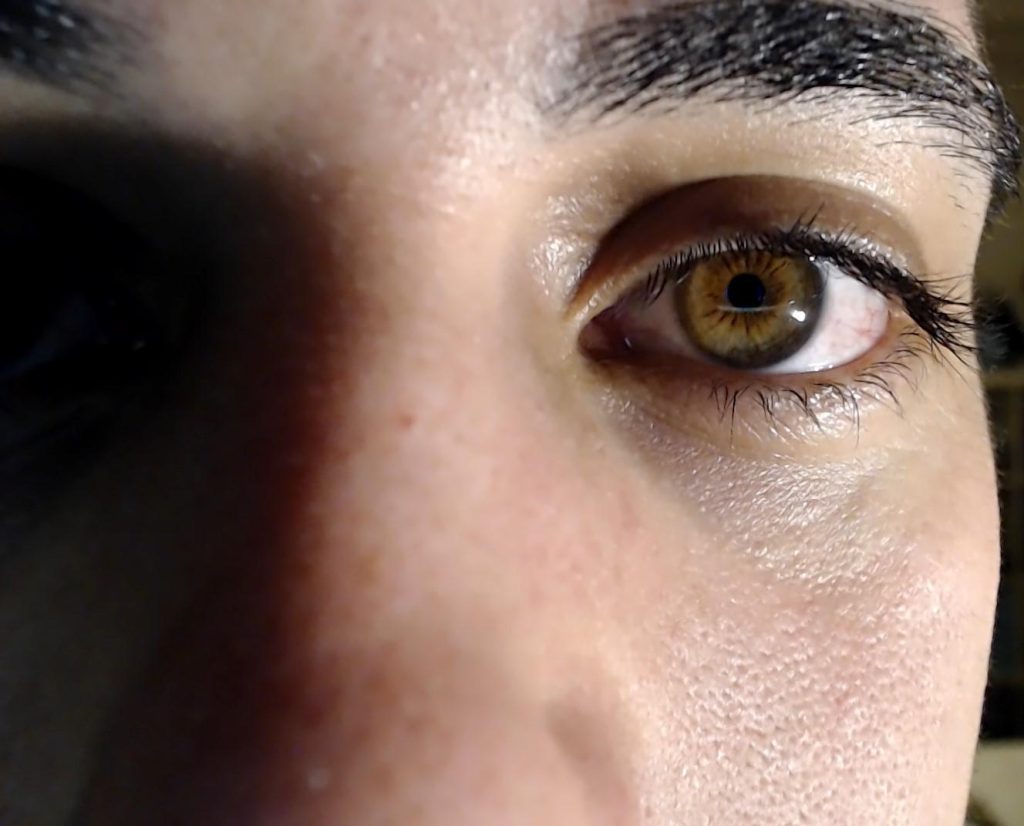
image source: reddit.com
Estrogen plays a role in brain function, and its decline during menopause can affect cognitive abilities. Night sweats, hot flashes, or insomnia can disrupt sleep, leading to cognitive fog and difficulty concentrating.
55. You might suffer from acne
Acne during menopause can be an unexpected and frustrating symptom for some women. While acne is commonly associated with adolescence, hormonal changes during menopause can also trigger or exacerbate acne. Changes in hormone levels,

image source: reddit.com
particularly a decrease in estrogen and progesterone, can affect the skin's oil production, leading to acne. Fluctuations in androgen hormones (like testosterone) can increase oil production, potentially leading to clogged pores and acne.
56. You might be more (or less) bloated/have bad gas
Bloating during menopause is a common issue for many women and can be attributed to hormonal changes and other factors related to this life stage. Changes in estrogen and progesterone levels can affect how the body retains water and processes waste,

image source: reddit.com
leading to bloating. Slower digestion and changes in gut bacteria composition during menopause can contribute to bloating. Hormonal shifts can cause the body to retain more water, leading to a feeling of bloating and discomfort.
57. You might have less tolerance for alcohol
Alcohol tolerance can change during menopause due to various factors, including hormonal fluctuations, changes in metabolism, and overall shifts in health and lifestyle. Fluctuating estrogen and progesterone levels can impact how the body processes alcohol.

image source: reddit.com
These hormonal shifts might affect how quickly alcohol is metabolized, potentially altering tolerance levels. As women age, their metabolism can slow down. This can influence how the body breaks down alcohol, leading to changes in tolerance.
58. And you'll likely have less tolerance for caffeine, too
Caffeine tolerance during menopause can be affected by hormonal changes, alterations in metabolism, and shifts in overall health. Changes in estrogen levels can impact how the body processes caffeine. Hormonal fluctuations may heighten sensitivity to caffeine, making its effects more pronounced.

image source: reddit.com
With age, metabolism can slow down. This can influence how the body breaks down caffeine, potentially altering tolerance levels. Menopause can bring sleep disruptions. Increased sensitivity to caffeine can further disturb sleep patterns, affecting overall tolerance.
59. Your breasts might be more or less tender
Breast tenderness during menopause can be an unexpected and uncomfortable symptom for some women. While breast tenderness is commonly associated with premenstrual syndrome (PMS) in younger years, hormonal fluctuations during menopause, particularly the decrease in estrogen and progesterone levels, can cause breast tissue to become more sensitive.

image source: reddit.com
This sensitivity might lead to feelings of soreness, swelling, or discomfort in the breasts. Though less common than during menstruation, breast tenderness during menopause can be unsettling and may vary in severity among individuals, requiring attention and possibly adjustments in lifestyle or medical care for relief.
60. You could be more prone to yeast infections
Yeast infections during menopause can occur due to hormonal changes that impact the vaginal environment. The decline in estrogen levels can lead to a decrease in the natural acidity and protective bacteria in the vagina, making it more susceptible to yeast overgrowth.

image source: reddit.com
This imbalance can result in symptoms such as itching, burning, vaginal discharge, and discomfort during urination or intercourse. Menopausal changes in vaginal pH and moisture levels create an environment where yeast can thrive, making women more prone to recurrent yeast infections.
61. You might still get menstrual cramps
Menstrual cramps during menopause, known as dysmenorrhea, can persist even when periods become irregular or cease entirely. While the menstrual cycle ends during menopause, some women continue to experience periodic cramping due to hormonal fluctuations.
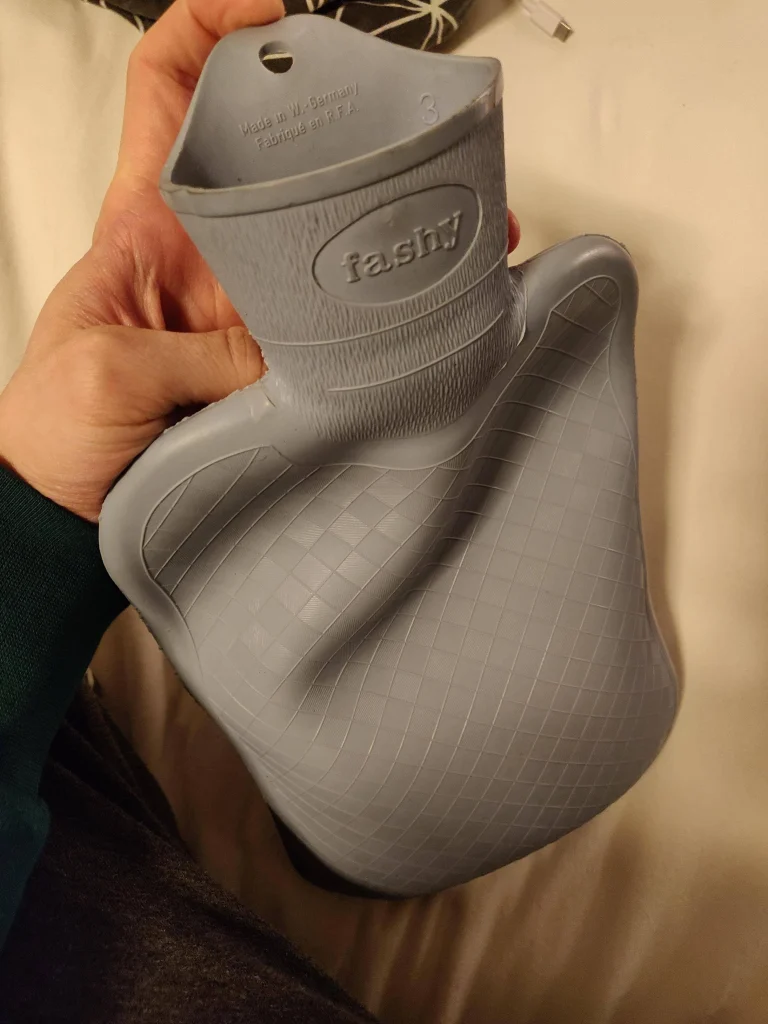
image source: reddit.com
These cramps may be sporadic and less intense than those experienced during menstruation, but they can still cause discomfort. Additionally, conditions like endometriosis or fibroids, which may have contributed to severe menstrual cramps earlier in life, can persist or exacerbate symptoms during menopause.
62. You could get more (or less) facial hair
Facial hair growth, known as hirsutism, can be a distressing symptom for some women during menopause. The hormonal shifts, particularly a decrease in estrogen and relative increase in androgen hormones like testosterone, can lead to changes in hair growth patterns.

image source: reddit.com
This hormonal imbalance can cause coarse, dark hair to grow on the face, chin, upper lip, or jawline where it wasn't previously present or where hair was finer. While not uncommon, this sudden facial hair growth can affect self-esteem and confidence.
63. Your PMS symptoms might last longer
Premenstrual syndrome (PMS) symptoms can persist or resurface during perimenopause, the transitional phase leading to menopause. While menstruation becomes irregular and eventually stops during menopause, hormonal fluctuations, particularly changes in estrogen and progesterone, can mimic PMS symptoms.

image source: reddit.com
Women may experience mood swings, irritability, breast tenderness, bloating, changes in sleep patterns, and fluctuations in energy levels similar to those encountered during their menstrual cycles. However, these symptoms can vary in intensity and duration during perimenopause and menopause, impacting each individual differently.
64. You might not be cut out for an intense workout
Engaging in regular exercise during menopause is crucial for maintaining overall health and managing various symptoms associated with this life stage. Exercise can help alleviate menopausal symptoms such as hot flashes, mood swings, weight gain, and decreased bone density.
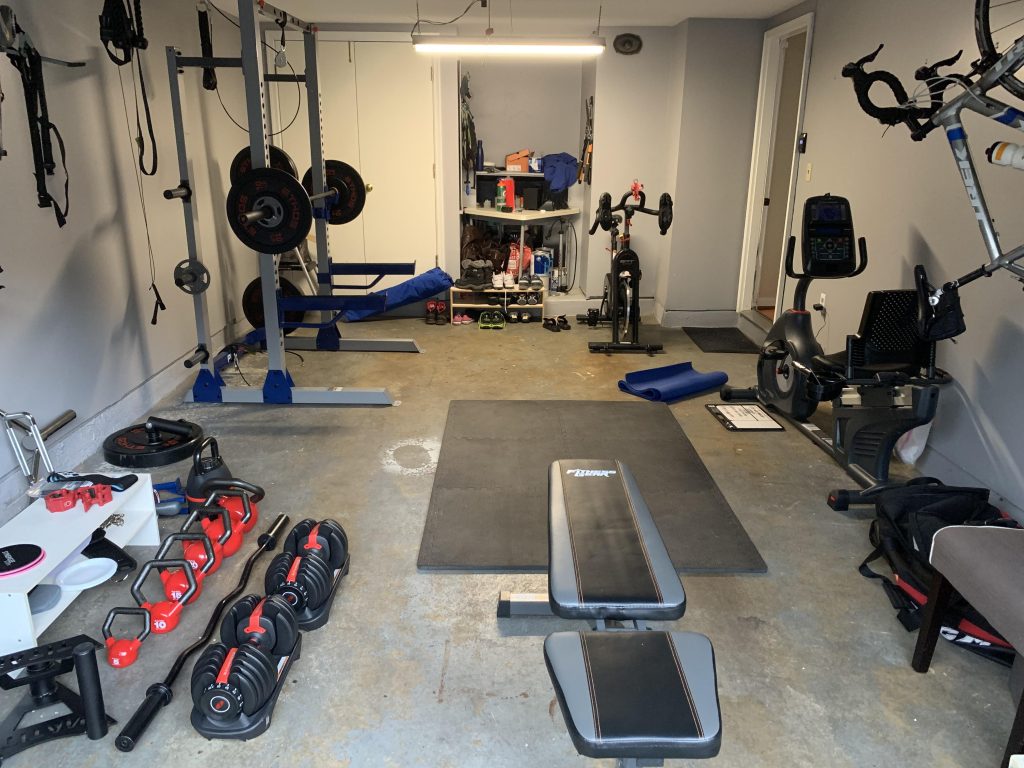
image source: reddit.com
It promotes cardiovascular health, boosts mood by releasing endorphins, aids in weight management by boosting metabolism, and supports bone health by strengthening bones. Incorporating a combination of aerobic exercises, strength training, flexibility exercises like yoga or stretching.
65. Migraines are more likely
Migraines during menopause can be a challenging aspect for many women. Hormonal fluctuations, particularly the decline in estrogen levels, can trigger or worsen migraines in some individuals. Women who experience migraines before or during menstruation may find that these headaches become more intense or frequent during perimenopause and menopause.

image source: reddit.com
However, not all women with migraines experience worsening symptoms during this phase. Menopause can also bring relief for some migraine sufferers, especially if hormonal fluctuations were the trigger for their headaches. Managing migraines during menopause involves a combination of lifestyle adjustments.
66. Your body might smell different
Body odor changes can occur during menopause due to hormonal fluctuations impacting sweat production and composition. As estrogen levels decrease, changes in hormonal balance can affect sweat glands, leading to alterations in body odor.
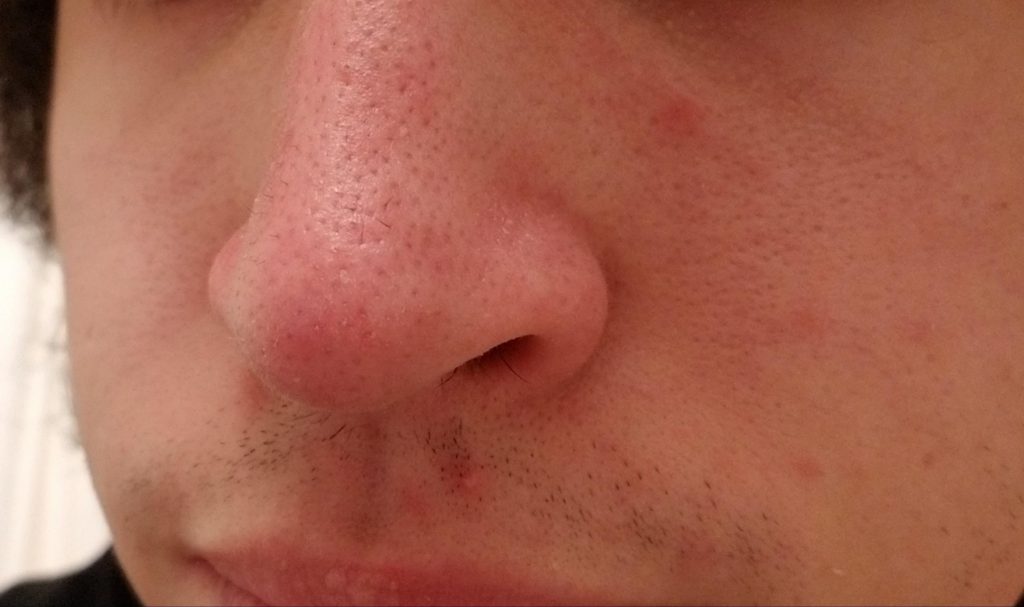
image source: reddit.com
Menopausal women might notice differences in their natural scent, which can become stronger or more pronounced. Additionally, hormonal shifts can contribute to changes in the skin's pH levels, making it more susceptible to bacterial growth that can produce different odors.
67. You might get motion sickness even if you didn't have it before!
Motion sickness during menopause can be experienced differently among women. While not directly caused by menopause, hormonal fluctuations during this phase may exacerbate or trigger motion sickness symptoms in some individuals.

image source: reddit.com
Estrogen, which plays a role in maintaining equilibrium and sensory functions, decreases during menopause, potentially affecting the body's ability to adjust to motion changes. Women who previously experienced motion sickness might find that these sensations intensify or become more frequent.
68. You could react differently to medications
Reacting to medication during menopause can vary from person to person. Hormonal changes and shifts in metabolism can influence how the body processes medications, potentially altering their effectiveness or causing different reactions.
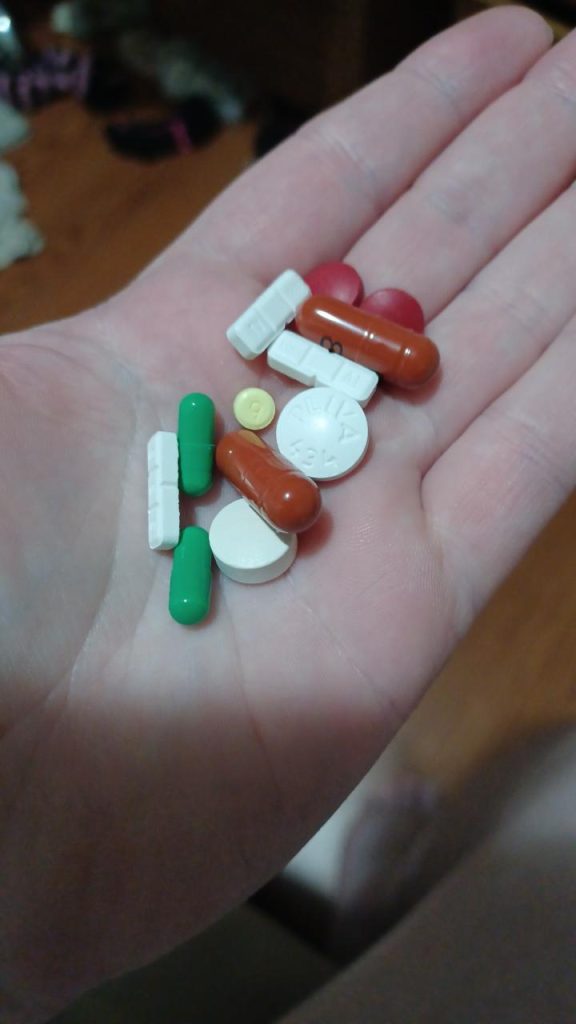
image source: reddit.com
Some women may find that they become more sensitive to certain medications, experiencing stronger side effects or unexpected reactions. Conversely, others might notice that medications they previously relied on may not work as effectively.
69. Your sleep patterns will likely be all over the place
Sleep patterns during menopause often undergo significant changes due to hormonal fluctuations and associated symptoms. Many women experience disruptions in their sleep, characterized by difficulties falling asleep, staying asleep, or waking up too early.

image source: reddit.com
Night sweats and hot flashes, triggered by hormonal changes, can lead to frequent awakenings and discomfort during the night, impacting overall sleep quality. Additionally, mood swings, anxiety, or stress related to menopausal changes can contribute to sleep disturbances.
70. Your toilet routine will likely change
Bowel movements during menopause can undergo changes for some women due to various factors, including hormonal fluctuations, lifestyle changes, and aging. Some women may experience alterations in bowel habits, such as changes in frequency, consistency, or regularity.

image source: reddit.com
Hormonal shifts, particularly the decline in estrogen, can affect the digestive system and contribute to constipation or irregular bowel movements. Additionally, menopausal symptoms like stress, anxiety, dietary changes, or reduced physical activity levels can impact digestive health and bowel regularity.
71. You'll lose (or gain) an appetite for certain foods
Appetite changes during menopause are common and can vary among women. Hormonal fluctuations, particularly decreases in estrogen levels, can influence appetite and eating behaviors. Some women might experience changes in appetite, including increased hunger or cravings.

image source: reddit.com
While others might notice a decrease in appetite. Fluctuating hormones can affect the regulation of hunger and fullness signals, leading to alterations in food preferences, cravings for certain types of foods (like sweets or carbohydrates), or changes in portion sizes.
72. Energy? What energy?
Energy levels during menopause can fluctuate due to hormonal changes, lifestyle factors, and overall health. Many women experience shifts in energy levels during this phase. Some might feel fatigued or experience a decrease in energy due to disrupted sleep patterns.
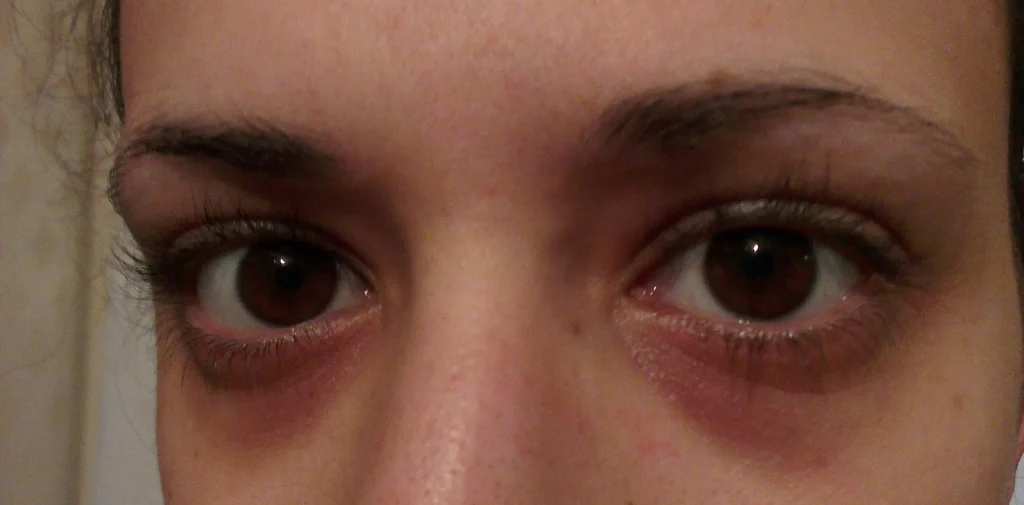
image source: reddit.com
Night sweats, or hormonal fluctuations impacting mood and stress levels. On the other hand, some women might find an increase in energy as they no longer experience the monthly hormonal fluctuations associated with menstruation.
73. You might need to pee more
Bladder changes during menopause are common and can include various symptoms due to hormonal fluctuations and aging. The decline in estrogen levels can affect the urinary tract, leading to changes in bladder function and overall urinary health.

image source: reddit.com
Many women experience symptoms such as increased urinary urgency, more frequent urination, urinary incontinence, or a higher susceptibility to urinary tract infections (UTIs). These changes can result from weakened pelvic floor muscles, decreased elasticity of the bladder and urethra, or changes in the lining of the urinary tract.
74. Your breasts might be more sensitive to things
Breast sensitivity during menopause can vary among women and is often attributed to hormonal fluctuations. As estrogen levels decline, changes in breast tissue can occur, leading to increased sensitivity, soreness, or discomfort.

image source: reddit.com
Some women might notice breast tenderness or changes in breast size and density during this time. Additionally, hormonal shifts can impact the distribution of breast fat and glandular tissue, contributing to feelings of sensitivity or fullness.
75. You may notice a breast tissue change on mammograms
During menopause, breast tissue can exhibit changes that appear different on mammograms. As hormonal fluctuations occur, breast composition alters, often leading to denser breasts. This increased density can make it challenging to detect abnormalities or potential tumors on mammograms.
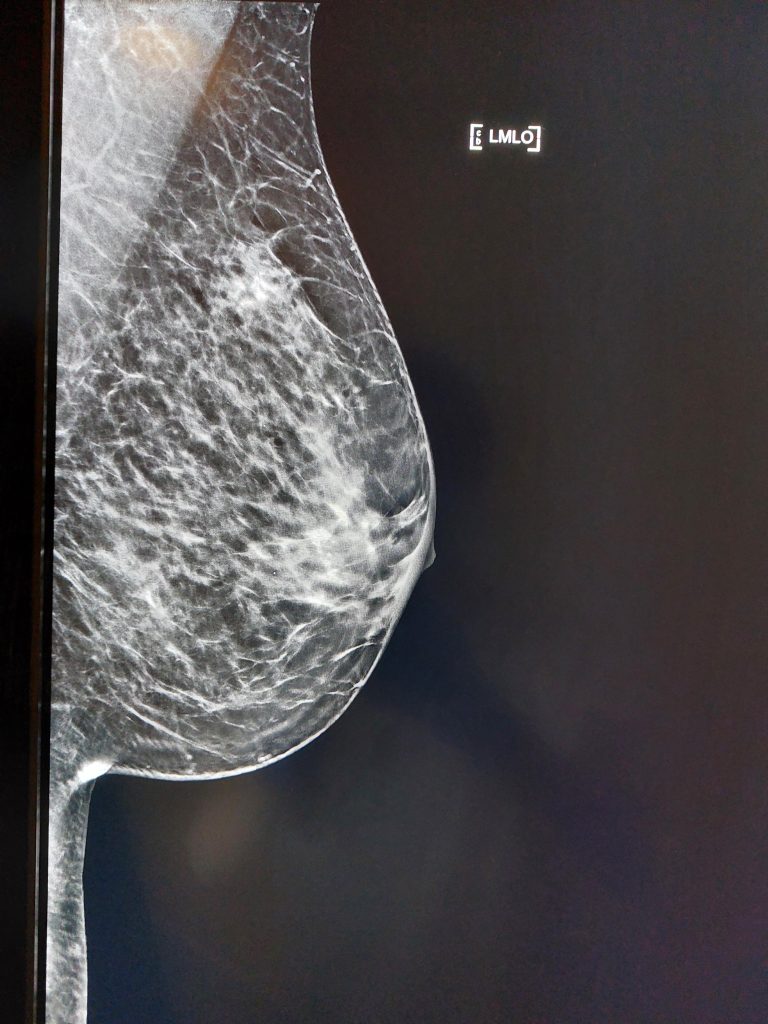
image source: reddit.com
As denser tissue appears white, similar to tumors, making them harder to distinguish. Moreover, hormonal changes might cause cysts or fibrous tissue to develop, further adding complexity to mammogram readings.
76. You'll be more at risk of skin irritation
Skin irritation during menopause is a common concern for many women undergoing hormonal changes. Decreased estrogen levels can lead to reduced collagen production, resulting in thinner, drier, and less elastic skin. These changes can make the skin more prone to irritation.

image source: reddit.com
Additionally, hormonal fluctuations can disrupt the skin's natural barrier function, making it more susceptible to environmental triggers like harsh weather conditions or certain skincare products. Menopausal skin might also experience changes in oil production.
77. Your complexion will likely change
Complexion changes during menopause are common due to hormonal fluctuations and aging. Decreased estrogen levels can affect collagen and elastin production, leading to changes in skin texture, tone, and elasticity. Many women notice a reduction in skin firmness and elasticity.
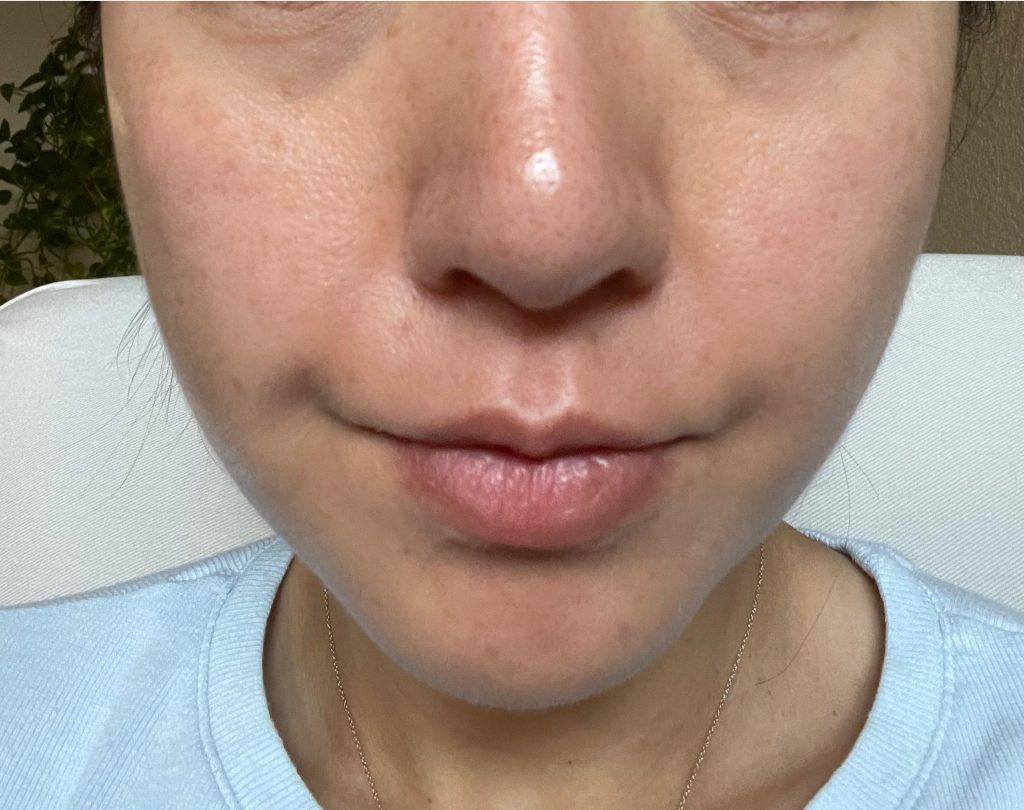
image source: reddit.com
Along with an increase in fine lines, wrinkles, and sagging. Hormonal shifts can also impact oil production, resulting in drier skin or, in some cases, increased oiliness. Additionally, menopausal changes might cause uneven skin tone, hyperpigmentation, or age spots due to sun exposure.
78. You might get off-balance more easily
During menopause, changes in hormone levels can affect various bodily functions, including balance. Estrogen plays a role in maintaining bone density and muscle strength, both of which contribute to overall balance and coordination.

image source: science.com
As estrogen levels decline, women might experience a decrease in bone density, leading to a higher risk of osteoporosis or fractures. Muscle mass and strength may also diminish, impacting stability and balance. Additionally, hormonal fluctuations can affect the inner ear.
79. Your body's hair growth patterns will likely change
Hair growth during menopause can show changes due to hormonal fluctuations. Some women might notice differences in hair thickness, texture, or distribution as estrogen levels decline. While some experience thinning hair or loss, others might notice increased facial or body hair.

image source: reddit.com
Hormonal imbalances, particularly the relative increase in androgen hormones like testosterone, can contribute to the growth of coarser, darker hair on the face, chin, upper lip, or other body areas. On the scalp, hair may become thinner, finer, or show signs of shedding.
80. You might not be able to control your bladder
During menopause, some women may experience urinary incontinence, which can manifest as a loss of bladder control. This condition can occur due to various factors, including hormonal changes, weakened pelvic floor muscles, decreased elasticity of the bladder and urethra, or changes in the urinary tract lining.

image source: reddit.com
Hormonal fluctuations, particularly the decline in estrogen levels, can impact the strength and integrity of pelvic muscles and tissues, leading to difficulties in controlling the bladder. Symptoms of urinary incontinence can range from mild leaks when sneezing or coughing to a sudden and uncontrollable urge to urinate.
81. Your cl*toris can actually change in appearance
During menopause, changes in hormonal levels can impact genital tissues, including the clitoris, but these changes might not be visibly noticeable in terms of appearance for every individual. With declining estrogen levels, some women might experience thinning of the vaginal walls.
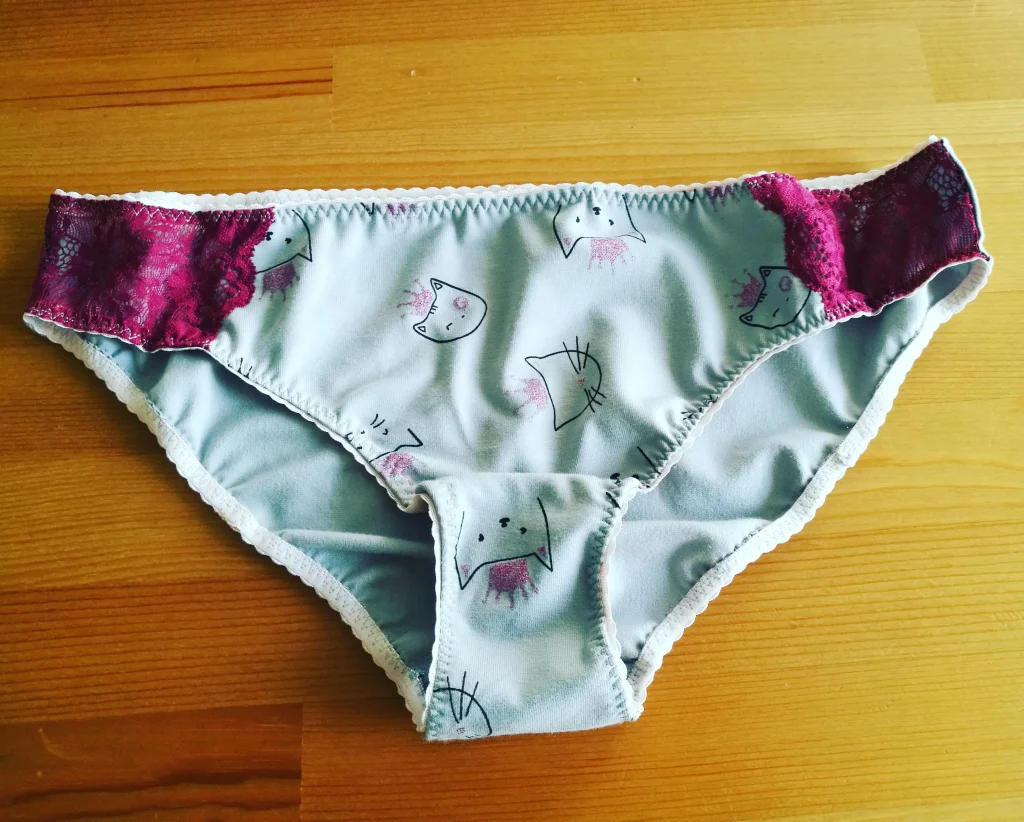
image source: reddit.com
And reduced blood flow to the genital area, which could potentially affect the sensitivity or size of the clitoris. However, these changes are often subtle and not universally experienced. Some women might notice decreased sensation or changes in arousal due to hormonal shifts impacting genital tissues.
82. More susceptible to dry mouth
Dry mouth, or xerostomia, can be experienced by some women during menopause due to hormonal changes. Estrogen decline can impact saliva production, leading to a sensation of dryness in the mouth. Reduced saliva flow can cause discomfort, making it difficult to swallow, speak, or taste properly.
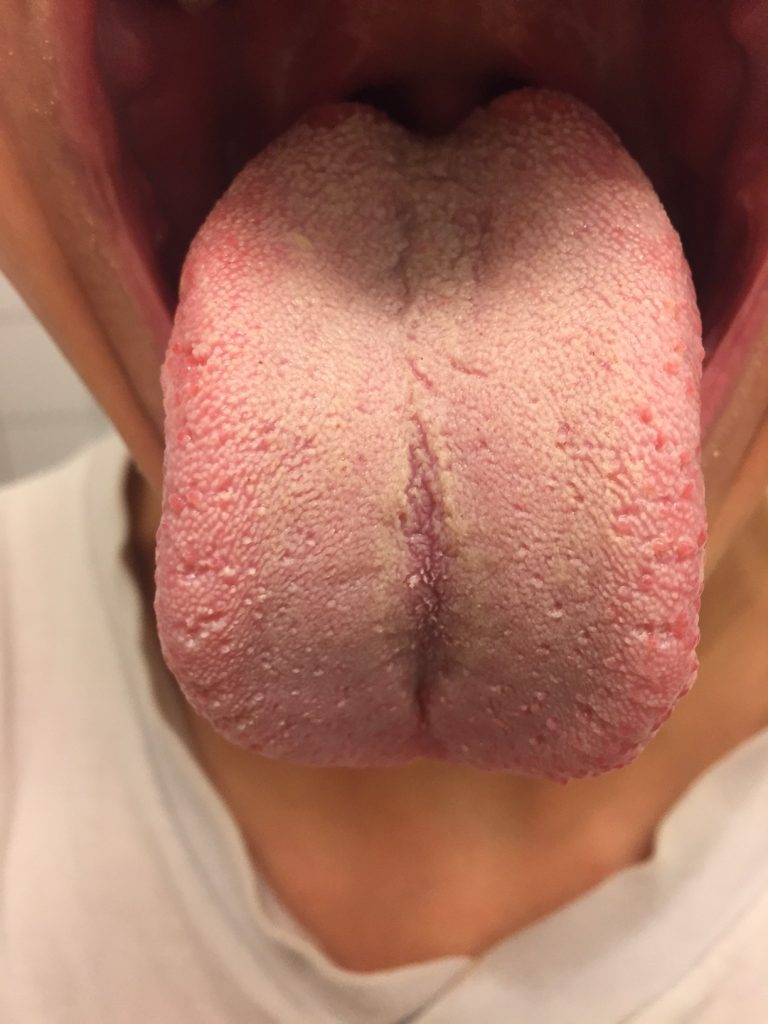
image source: reddit.com
Additionally, menopausal symptoms such as stress, anxiety, or medications used to manage other menopausal symptoms might also contribute to dry mouth. Managing dry mouth during menopause often involves staying hydrated by drinking plenty of water.
83. Your blood sugar levels can change
Blood sugar levels can be affected during menopause due to hormonal changes and other related factors. Some women might experience fluctuations in blood sugar levels as estrogen levels decline. Estrogen plays a role in how the body uses insulin, the hormone that regulates blood sugar.
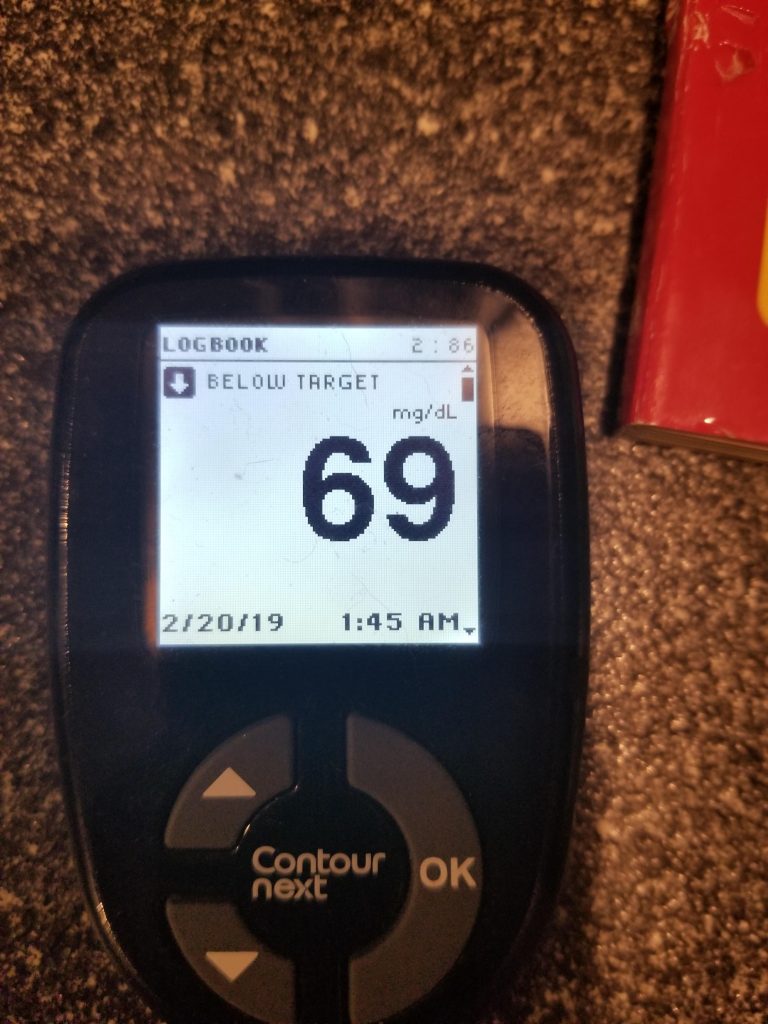
image source: reddit.com
As estrogen decreases, insulin sensitivity can be affected, potentially leading to changes in how the body processes glucose. This hormonal shift might increase the risk of insulin resistance or make it harder for the body to maintain stable blood sugar levels.
84. You might sweat more
Sweat changes are a hallmark of menopause for many women due to hormonal fluctuations impacting the body's temperature regulation. Hot flashes and night sweats are common during this phase, characterized by sudden feelings of intense heat, sweating, and flushing of the face and upper body.

image source: reddit.com
These episodes can vary in frequency and intensity, disrupting sleep patterns and daily activities. Hormonal changes, particularly declining estrogen levels, can affect the hypothalamus, the body's thermostat, leading to these sudden temperature fluctuations.
85. You might feel differently about your body image
Body image changes during menopause can be significant for some women due to shifts in hormone levels and physical transformations. The changes in body composition, including weight gain, redistribution of fat, and alterations in skin elasticity, can impact how women perceive their bodies.

image source: reddit.com
Some women might struggle with feelings of dissatisfaction, self-consciousness, or concerns about aging-related changes such as wrinkles, sagging skin, or changes in breast size. Menopausal symptoms like hot flashes, mood swings, or changes in energy levels can also affect self-esteem and body image.
86. You might have different sensations in your breasts
During menopause, changes in hormone levels can lead to various sensations in the breasts for some women. Decreased estrogen levels can impact breast tissue, potentially causing sensations of tenderness, soreness, or discomfort.

image source: reddit.com
Some women might notice changes in breast density or firmness, while others may experience increased sensitivity or tingling sensations in the breasts. These sensations can occur due to hormonal fluctuations affecting the breast's glandular and supportive tissues.
87. You could be more sensitive to sounds
Sensitivity to sounds during menopause is not a commonly reported symptom, but hormonal fluctuations and changes in stress levels might potentially impact sensory perceptions in some women. While research linking menopause directly to sound sensitivity is limited, hormonal changes can affect the nervous system and sensory processing,
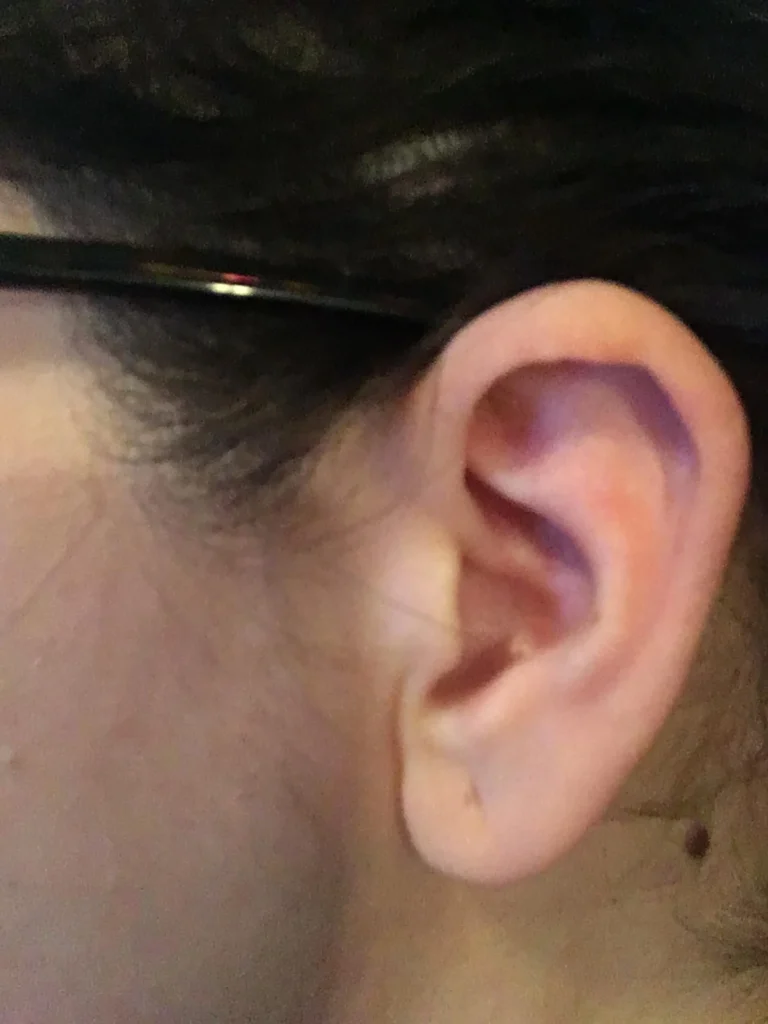
image source: reddit.com
Potentially leading to variations in how individuals perceive and react to sounds. Additionally, heightened stress or anxiety commonly experienced during menopause might increase overall sensitivity, including sensitivity to sounds.
88. You might be more clumsy!
Some women may notice a change in coordination or experience increased clumsiness during menopause. Hormonal fluctuations during this phase can impact various bodily functions, including muscle strength, joint flexibility, and balance.

image source: reddit.com
Changes in estrogen levels can affect muscle tone and coordination, potentially leading to feelings of unsteadiness or clumsiness. Additionally, menopausal symptoms like sleep disturbances, fatigue, or mood swings can also contribute to decreased focus and coordination.
89. You could get allergic to more things
Allergies during menopause can present in various ways, although direct links between menopause and new allergies aren't extensively documented. However, changes in hormone levels might influence the immune system, impacting how the body responds to allergens for some women.
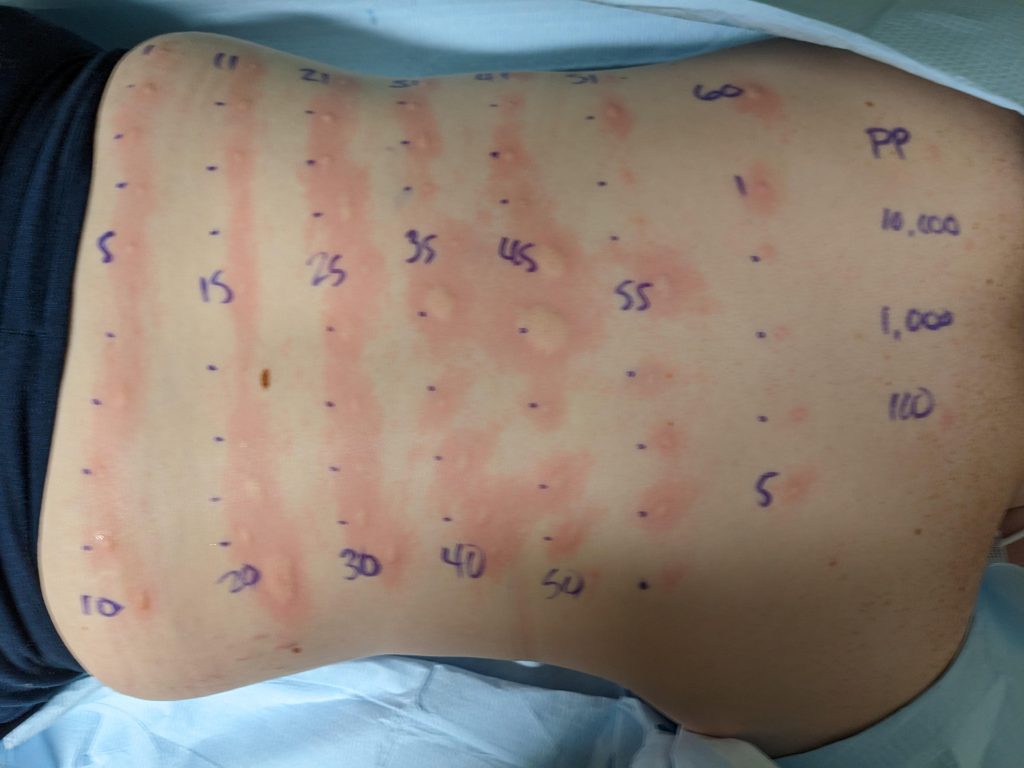
image source: reddit.com
Some women might experience changes in existing allergies, noticing heightened sensitivity or different reactions to allergens they were previously exposed to without issues. Hormonal fluctuations might affect immune responses, potentially triggering or exacerbating allergy symptoms such as sneezing.
90. Your digestion could speed up or slow down
Digestive changes during menopause are relatively common, although they're not often discussed in detail. Hormonal fluctuations, particularly the decrease in estrogen, can impact digestive health in various ways. Some women might experience changes in digestion, such as slower digestion, bloating, or irregular bowel movements.

image source: reddit.com
Decreased estrogen levels can affect the smooth muscle function in the gastrointestinal tract, potentially leading to changes in bowel habits or increased bloating. Additionally, menopausal symptoms like stress or anxiety can also affect digestion.
91. Your voice could even sound different
Voice changes during menopause are not typically discussed extensively, but hormonal fluctuations can affect various aspects of the body, including the vocal cords and the larynx. While not universally experienced, some women might notice subtle alterations in their voice during menopause.

image source: reddit.com
Changes in estrogen levels can impact the elasticity and lubrication of vocal cords, potentially affecting the pitch, resonance, or clarity of the voice. However, these changes are often mild and might not be noticeable for many women.
92. Your body composition can change
Body composition changes significantly during menopause due to hormonal fluctuations and aging. As estrogen levels decline, women might notice alterations in fat distribution, particularly an increase in abdominal fat. This shift can lead to changes in body shape.

image source: reddit.com
Where fat tends to accumulate around the abdomen rather than hips and thighs. Additionally, muscle mass might decrease, impacting overall body strength and metabolism. These changes can contribute to weight gain, especially around the midsection.
93. Your boobs might look a lot different
During menopause, breasts can undergo various changes due to hormonal fluctuations and aging. Some women might notice differences in breast size, shape, or density as estrogen levels decline. Changes in breast tissue composition and elasticity can lead to alterations in appearance.

image source: reddit.com
Additionally, hormonal shifts might affect the distribution of fat and glandular tissue in the breasts. These changes can result in differences in breast fullness or overall appearance. While these changes are common, they're not universally experienced, and some women might notice minimal or no visible alterations.
94. You can struggle with temperature regulation
Temperature regulation can become challenging for women during menopause due to hormonal fluctuations. The decrease in estrogen levels can impact the body's internal thermostat, the hypothalamus, responsible for regulating body temperature.
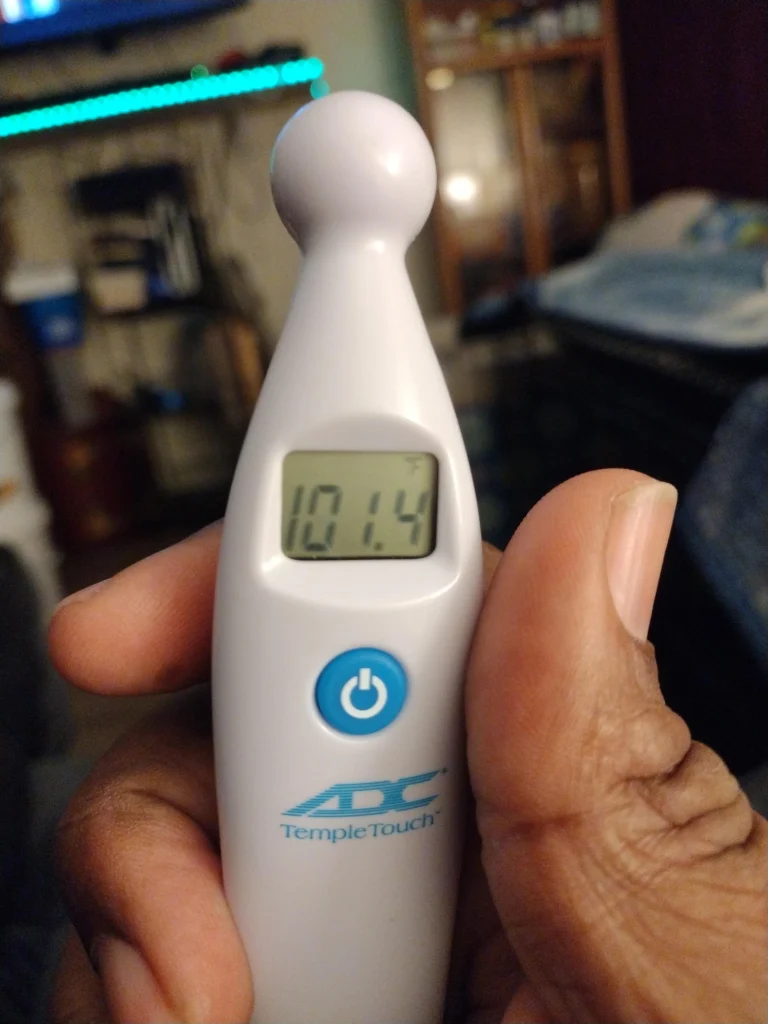
image source: reddit.com
This disruption can lead to hot flashes and night sweats, characterized by sudden feelings of intense heat, flushing, and sweating, often disrupting sleep and daily activities. Additionally, the body might become more sensitive to temperature changes, making it harder to tolerate heat or cold.
95. Loss of muscle mass
During menopause, many women experience a decline in muscle mass, often attributed to hormonal changes, aging, and lifestyle factors. Estrogen, which plays a role in maintaining muscle mass and strength, decreases during this phase.

image source: reddit.com
As a result, women may notice a gradual loss of muscle mass, known as sarcopenia. Reduced physical activity, changes in metabolism, and a decrease in protein synthesis can also contribute to muscle loss during menopause.
96. Your fingernails can even change
Fingernail changes during menopause are not often discussed, but hormonal fluctuations can impact nail health for some women. While not a universal experience, some women might notice alterations in their fingernails, such as increased brittleness, changes in texture, or slower growth rates.
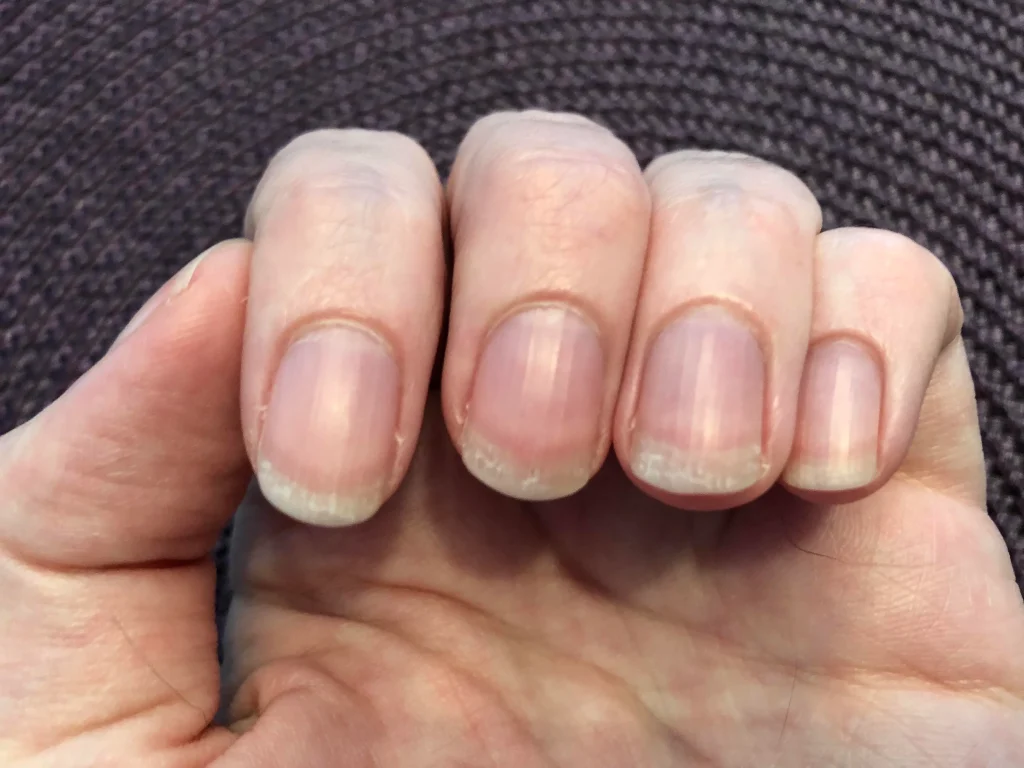
image source: reddit.com
The decline in estrogen levels can affect the production of keratin, a protein crucial for nail strength, potentially leading to nails that are more prone to breaking or becoming brittle. Hormonal shifts can also impact moisture levels in the body, potentially causing nails to become drier.
97. Your skin will likely get drier
Dry skin is a prevalent issue for many women during menopause due to hormonal changes impacting skin health. Declining estrogen levels can reduce the skin's ability to retain moisture and maintain its natural hydration, leading to dryness, flakiness, or itchiness.
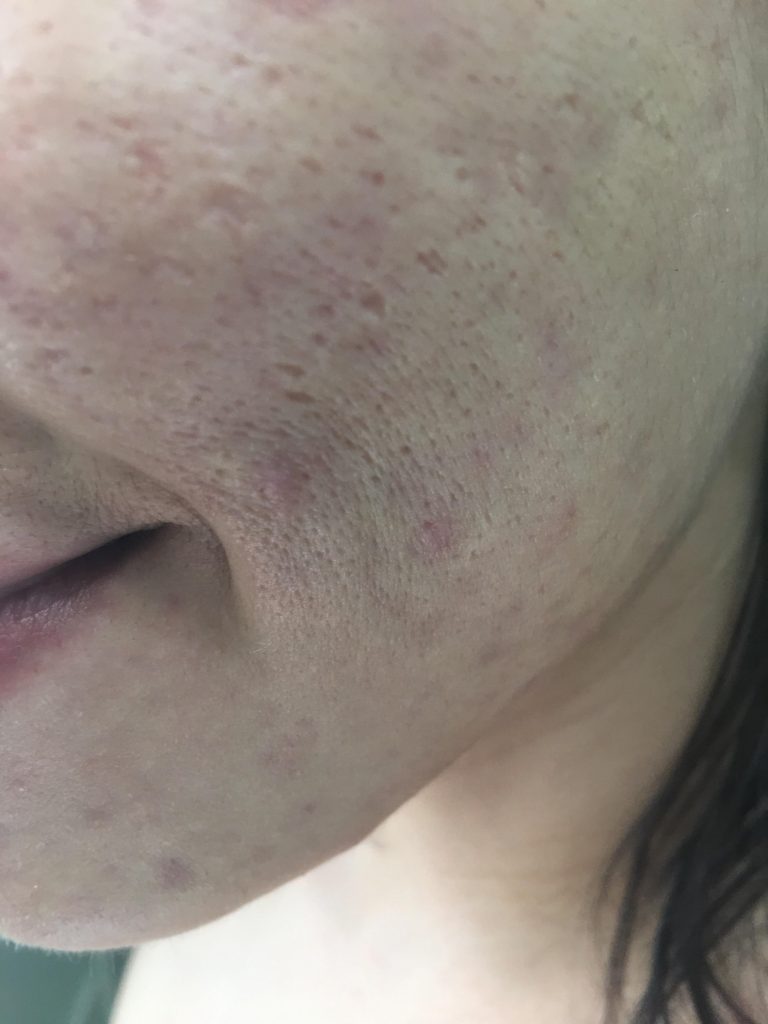
image source: reddit.com
Additionally, reduced oil production can affect the skin's protective barrier, making it more susceptible to moisture loss and environmental irritants. Menopausal symptoms like hot flashes or night sweats can exacerbate dry skin by causing increased water loss through sweating.
98. S*x is going to be completely different
Sexual experiences and libido can change for women during menopause due to hormonal fluctuations and physiological changes. Decreased estrogen and testosterone levels can lead to various symptoms impacting sexual health, including vaginal dryness, reduced natural lubrication, and thinning of vaginal tissues.

image source: reddit.com
These changes can result in discomfort or pain during intercourse, decreased arousal, and altered sensations. Some women might experience a decline in libido or changes in sexual desire due to hormonal shifts, menopausal symptoms like hot flashes or mood swings.
99. Your posture might take a hit
Posture changes during menopause can occur due to various factors, including hormonal fluctuations, changes in bone density, and alterations in muscle mass and strength. As estrogen levels decline, women might experience a decrease in bone density.

image source: reddit.com
Weakening bones, combined with changes in muscle mass, can affect posture by reducing spinal support and muscle strength, leading to a more rounded or stooped posture. Additionally, menopausal symptoms like fatigue, decreased physical activity, or discomfort from hot flashes might impact posture.
100. You might have more trouble with your teeth
Menopause can bring about changes in oral health, impacting teeth and gums due to hormonal fluctuations. Reduced estrogen levels can affect the gum tissues, potentially leading to gum inflammation, increased sensitivity, or even gum disease.
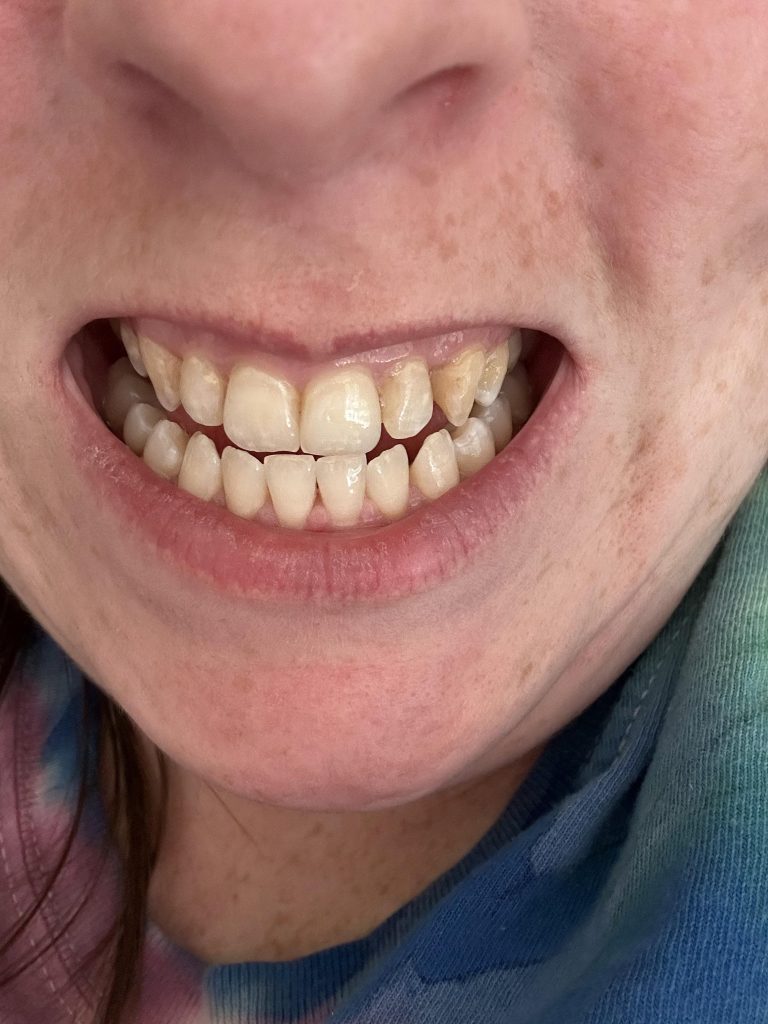
image source: reddit.com
Some women might notice changes in gum health, such as bleeding gums, dry mouth, or an increased risk of periodontal issues. Additionally, menopausal symptoms like hot flashes or night sweats might contribute to dry mouth, which can increase the risk of tooth decay and gum problems.



































































































